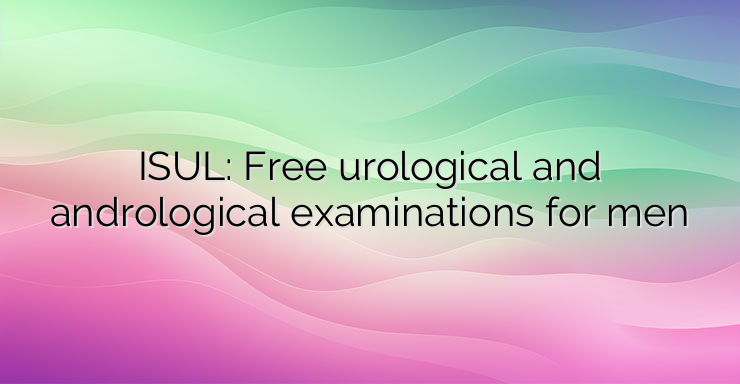Free urological and andrological examinations for men will be available throughout November at the Urology and Andrology Clinic of the Queen Joanna UMBAL – ISUL. The free examinations will last from 01.11.2021 to 30.11.2021. They will take place from Monday to Friday, between 11:00 and 13:00 in the cab. 225 of the Diagnostic-consultative block of UMBAL “Tsarica Joanna – ISUL”. In view of the aggravated covid situation and in order to avoid crowding, it is mandatory to book an appointment in advance by calling 02 9432 201. It is desirable for the examination that men bring with them a prostate tumor marker (PSA) test, as well as basic blood tests (complete blood count) and a general urine test no more than a month before the examination. Through these free examinations, the hospital team joins the international Movember initiative. “November” in English means the calendar month of November. The colloquial name for the word “mustache” in some English-speaking countries is “mo”. Together, the two form “Movember”. During this time of the year, millions of men around the world grow mustaches or artificial ones in solidarity with men’s health issues. The most serious urological and andrological diseases are prostate cancer, testicular cancer, bladder and urethral tumors and the suicides that these diagnoses sometimes lead to. In terms of frequency, prostate cancer ranks second in Bulgaria after lung cancer in men. About 3,000 men get sick from it every year. It has been proven that there is a genetic predisposition – men who have a father, grandfather, or brother with this diagnosis have almost twice the risk of developing the disease. Modern science has proven that the defective gene can also be passed on through the maternal line if she has been diagnosed with breast cancer. Most often, men over 60 years of age suffer from prostate cancer, but earlier manifestations of the disease, when it is more aggressive, are not an exception. In contrast to developed countries, prostate cancer in most cases is detected in an advanced stage in our country, when the possibilities of medicine are limited. It is among the silent killers because before it advances (develops), there are almost no symptoms. The only way to detect it in time is regular preventive examinations at a urologist and testing of the specific tumor marker PSA. “Therefore, I advise all men over the age of 50 to examine their tumor marker and to go to a urologist once a year or every 2 years if there is no evidence of carcinoma after the first visit,” says Academician Prof. Dr. Chavdar Slavov, Head of the Clinic in urology and andrology at the “Tsaritsa Joanna – ISUL” UMBAL. The famous urologist, who has over 1,000 operations for prostate cancer behind him, advises men not to rely only on laboratory results, which are often falsely negative. “With an examination, an experienced urologist can detect even an initial entity,which has not yet been detected by the radar of the PSA marker.” In the capital hospital, a “Center for Complex Therapy of Prostate Gland Tumors” was opened a few months ago. The focus in the clinical behavior of these prostate diseases is focused on high-tech, minimally invasive and at the same time maximally effective methods of diagnosis and treatment. The center has a latest generation hybrid laser, as well as one of the most modern systems for biopsy diagnosis of the prostate gland – through transrectal or transperineal access, allowing extremely precise targeting of suspicious areas in the prostate gland. These high-tech methods significantly increase the sensitivity of performed prostate biopsies and allow detection of the disease in its early stages. Within a month, a new, high-tech method for the treatment of prostate tumors will be introduced, which will be unique to Bulgaria. Low-dose brachytherapy involves inserting small grains, called seeds, of iodine 125 isotope, calculated according to a certain formula, into the prostate gland itself. This is followed by intra-tissue radiation within 6-8 weeks, in which a 96% cure is achieved. This method saves the patient inconveniences associated with the surgical removal of the gland such as leakage of urine and erectile dysfunction, as well as the probability of the disease evolving to more severe stages. The patient stays in bed for only 24 to 48 hours.


Leave a Reply